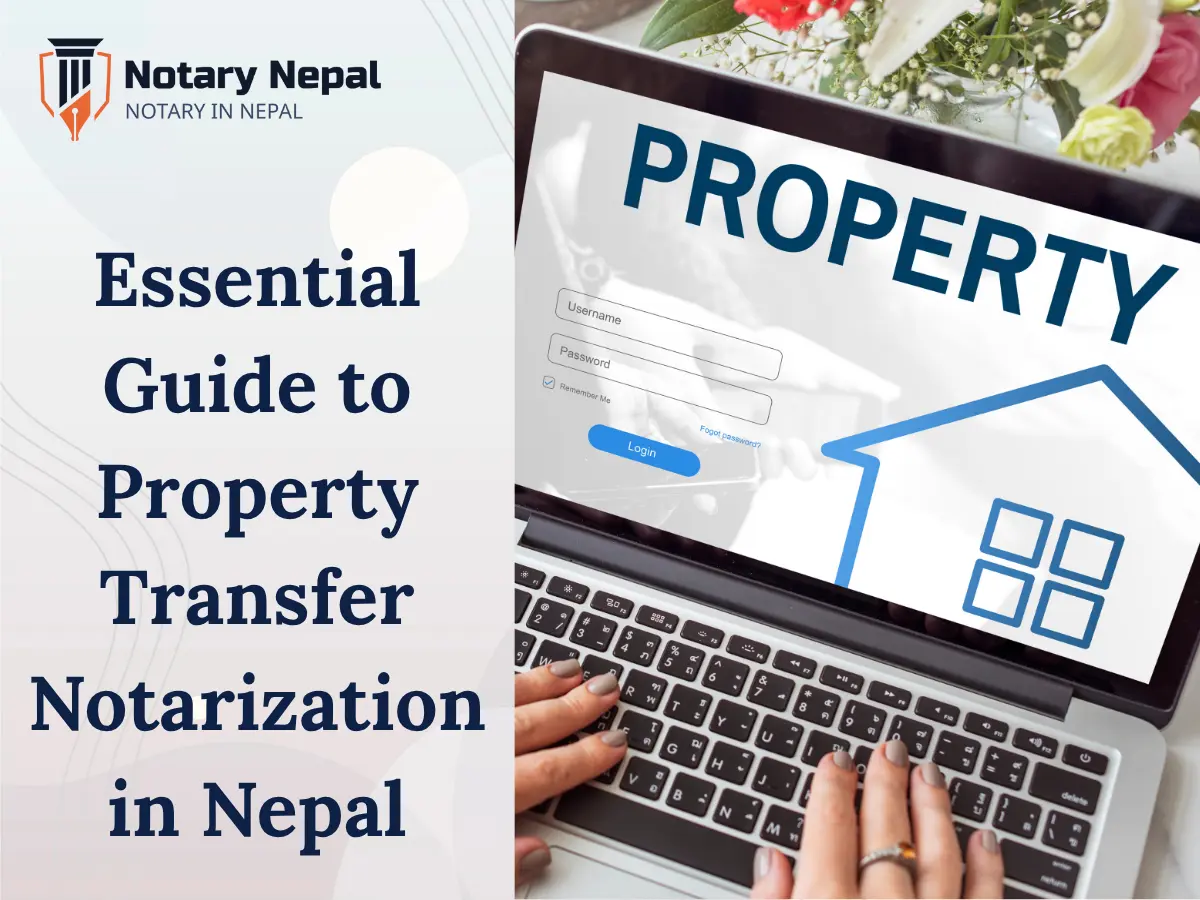

Table of Contents
Understanding Property Transfer Notarization in Nepal
Property transfer notarization in Nepal is a vital legal step to ensure the legitimacy of property transactions. Whether you're transferring land, house ownership, or other real estate assets, notarization confirms the document’s authenticity, preventing fraud, disputes, or legal invalidation. In a country where property ownership holds great cultural and economic value, having every transaction notarized is not just a legal formality—it's a safeguard.
This guide covers everything you need to know about notary public services for property transfers, legal requirements, foreign ownership implications, and how to avoid common documentation pitfalls.
Why Is Notarization Required in Property Transfers?
In Nepal, notarization is mandatory when dealing with documents related to property ownership, especially in the following cases:
- Sale and purchase of land or house
- Inheritance or succession of ancestral property
- Property gifted or transferred between relatives
- Registration of property ownership changes with Land Revenue Offices
Notarization verifies:
- The identity and intent of signatories
- The legality of supporting documents
- The absence of coercion or fraud in transactions
Legal Framework for Property Transfer in Nepal
Nepal’s property ownership and transfer are regulated by several key laws, such as:
- Muluki Civil Code, 2074 (2017)
- Land Revenue Act, 2034 (1977)
- Notary Public Act, 2063 (2006)
Under these regulations:
- Property documents must be notarized by a licensed notary public
- Copies submitted to authorities must be certified as true by a notary
- All parties involved must appear in person with valid ID and proof of ownership
Types of Property Transfer That Require Notarization
1. Sale and Purchase Agreements
Documents verifying a legal sale agreement between a buyer and seller, including:
- Deed of Sale
- Proof of payment
- Identity verification
2. Inheritance or Succession Transfers
Notarized documents confirm the legal heir(s), often requiring:
- Death certificate
- Relationship proof
- Property division agreement
3. Gift or Donation Transfers
When property is gifted between family members or third parties, notarized gift deeds and declaration documents are essential.
4. Transfer via Court Orders or Settlements
In case of disputes, the court order or legal settlement must be notarized before registration.
Common Documents That Must Be Notarized
- Citizenship certificate or passport of parties
- Land ownership certificate (Lalpurja)
- Tax clearance certificate
- Relationship verification (in case of inheritance)
- Power of attorney, if applicable
- Property valuation report
- Court rulings (if required)
All these documents need to be validated by a licensed notary public before submission.
Role of Notary Public in Property Transfers
A notary public in Nepal serves as a legally authorized officer who:
- Certifies the authenticity of property-related documents
- Verifies signatory identities
- Witnesses the signing of deeds and contracts
- Issues notarized copies that are accepted in government and legal offices
They act as an impartial witness, ensuring the documents are complete, voluntarily signed, and legally enforceable.
Foreign Nationals and Property Notarization
Nepal’s property laws limit direct ownership by foreigners. However, notarization may still be needed in cases such as:
- Joint ventures or property leases involving Nepali citizens
- Business investments where land is leased under the company name
- Embassy or diplomatic property exchanges
Documents involving foreigners must include a valid visa, passport, and authorization letters—translated into Nepali and notarized accordingly.
How to Notarize Property Documents in Nepal
- Prepare Original Documents – Gather ownership deeds, tax records, and personal IDs.
- Visit a Licensed Notary Public – Notary Nepal, for instance, offers certified notarial services nationwide.
- Verification and Signing – Documents are reviewed, signed in presence of the notary, and sealed.
- Submit to Relevant Authorities – Take the notarized documents to the Land Revenue Office or court.
Avoiding Fraud and Disputes in Property Transfers
Notarization significantly reduces the risk of fraud. However, further precautions include:
- Cross-verifying land ownership through the Land Revenue Office
- Using professional translators for non-Nepali documents
- Recording visual evidence (photos/videos) of the signing process
Services Offered by Notary Nepal for Property Transfers
- Drafting and notarizing sale/purchase agreements
- Verifying inheritance and gift transfer papers
- Certifying power of attorney documents
- Translating and notarizing foreign documents
- Legal consultation on real estate transfers
Our experienced team ensures every property transfer is secure, legally valid, and dispute-free.
Final Thoughts: Why Choose Notary Nepal?
With decades of experience in notarization and legal documentation, Notary Nepal ensures your property transfers are fast, authentic, and 100% compliant with Nepali law.
Contact Us:
+977 9765979296
Visit Notary Nepal
Secure your property. Protect your legacy. Choose Notary Nepal for trusted notarization services.
This article is for informational purposes only and does not constitute legal advice, advertisement, or solicitation. Notary Nepal and its team are not liable for any consequences arising from reliance on this information. For legal advice, please contact us directly.


